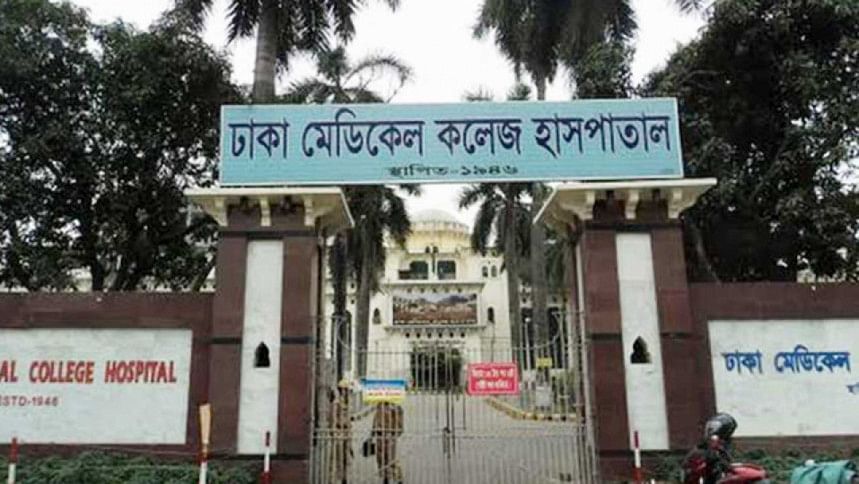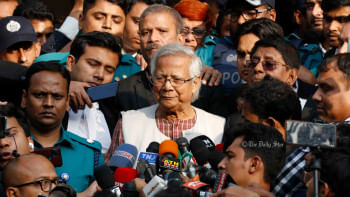Shishu Bikash Kendra at DMCH: Helping children thrive

Young parents Parul and Mijan became concerned when their only child, 16-month-old Aytullah, was having trouble standing up or sitting down -- activities that kids his age would easily perform.
They later discovered that Aytullah developed motor skills disorder at birth due to inadequate oxygen supply to his brain during delivery, which made it difficult for him to perform age-appropriate activities.
"About 3-4 months ago, we took him to different clinics in Shariatpur, but the doctors couldn't diagnose the problem. Later, we visited Dhaka Medical College Hospital's Shishu Bikash Kendra, where the doctors were finally able to identify Aytullah's case," said Parul.
Most parents are mainly concerned about their children's physical growth and often fail to address lapses in their cognitive development. The situation is prevalent in both marginalised households and high-income families due to a lack of awareness.
Aytullah did not cry for about two hours after birth, an indicator that his parents and doctors had failed to address. This in turn affected his cognitive stimulation and IQ.
"The doctors have instructed us to perform some exercises and drills. We will know more about ways to help him after several other tests and observing his behavioural changes," she added.
Sheuli Akhter, 27, had a similar experience. Her six-year-old son Ismail's speech was delayed, which led to poor communication skills. Sheuli took Ismail to the centre and discovered that the boy had oral–motor problems.
Speech delays may lead to many other problems, including poor listening skills. Oftentimes, Ismail failed to communicate his wishes, which led to aggression towards others, especially family members, mentioned Sheuli.
Ismail is currently under treatment at the Kendra. Meanwhile, his mother has enrolled him in music and recitation classes and is also facilitating oral exercises advised by experts.
Active since 2009, the Kendra started its journey as a small centre on the DMCH premises. Currently, 34 such centres are operational around the country. The one at DMCH is open Saturday through Thursday from 8:00am to 2:30pm.
Most parents are mainly concerned about their children's physical growth and often fail to address lapses in their cognitive development. The situation is prevalent in both marginalised households and high-income families due to a lack of awareness, said Dr Toshiba Rahman, in-charge of Child Development Center and Neurology Clinic at DMCH.
"Children with intellectual disabilities show several symptoms leading to Down Syndrome, Cerebral Palsy, and Hypothyroidism. Some children have seizures that damage nerves immediately, but the parents do not understand it," she said.
At the Kendra, every child is assessed for a maximum 3-4 hours to evaluate their behaviour to determine and facilitate the treatment they require, she mentioned.
Children's neurological, cognitive, intellectual, and learning disabilities are thoroughly checked before suggestions and advice on behavioural modification, therapy, and schooling are given to parents, said Afroja Begum, child psychologist at the Kendra in DMCH.
"We not only treat the children but also ensure that they are enrolled into special schools to ensure the care they need. We have a network of such institutions," she added.
The earlier the problem is identified, the faster efforts can be made to address and solve it, she mentioned.
The Kendra usually serves 10-12 children every day, aged between 45 days and 10-year-old. The services are facilitated free of charge for every child with an entry fee of Tk 10, she added.

 For all latest news, follow The Daily Star's Google News channel.
For all latest news, follow The Daily Star's Google News channel. 




Comments